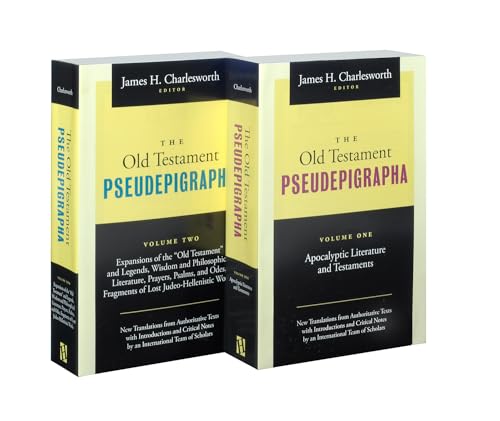Old Testament Pseudepigrapha I Rejected Scriptures Verses
Description

The word Pseudepigrapha literally means “false writings.” The Old Testament Pseudepigrapha is a general term that refers to a number of religious books written by Jews during the last few centuries B.C and the first few centuries A.D. Therefore, they overlap the Old and New Testament period. Old Testament Pseudepigrapha II - REJECTED SCRIPTURES Chapters 69-73 of 2 Enoch (sometimes referred as the Exaltation of Melchizedek or 2EM) outline the priestly succession of Enoch. There is not unanimous consensus whether this section belongs to the main body of the text or it is an early addition.
Pseudepigrapha Books
The Encyclopedia of Lost and Rejected Scriptures: The Pseudepigrapha and Apocrypha – Section One – Lost Scriptures of the Old Testament – First Book of Adam and Eve, Second Book of Adam and Eve, First Book of Enoch, Second Book of Enoch (Secrets of Enoch), Third Book of Enoch (Hebrew Enoch), Jubilees, Jasher – Section Two – Apocalyptic Writings and the End of Days – Apocalypse of Abraham, Apocalypse of Thomas, 2 Baruch, War Scroll (Sons of Dark vs. Sons of Light) – Section Three – Lost Scriptures of the New Testament – Gospel of Philip, Gospel of Mary Magdalene, Apocryphon of John, Gospel of Thomas, Gospel of Judas, Acts Chapter 29 – – Section Four – The Life and Times of Jesus – Infancy Gospel of James, Infancy Gospel of Thomas, Life of Joseph The Carpenter, Letters of Pilate, Life of Saint Issa – Section Five – The Apocrypha – 1 Esdras, 2 Esdras, 1 Maccabees, 2 Maccabees, 3 Maccabees, 4 Maccabees, Letter (Epistle) of Jeremiah, The Prayer of Azariah, 1 Baruch, Prayer of Manasseh (Manassas), Bel and the Dragon, Wisdom of Sirach, Wisdom of Solomon, Additions to Esther, Tobit, Judith, Susanna, Psalm 151, 1 Clements, Shepherd of Hermas, The Didache





